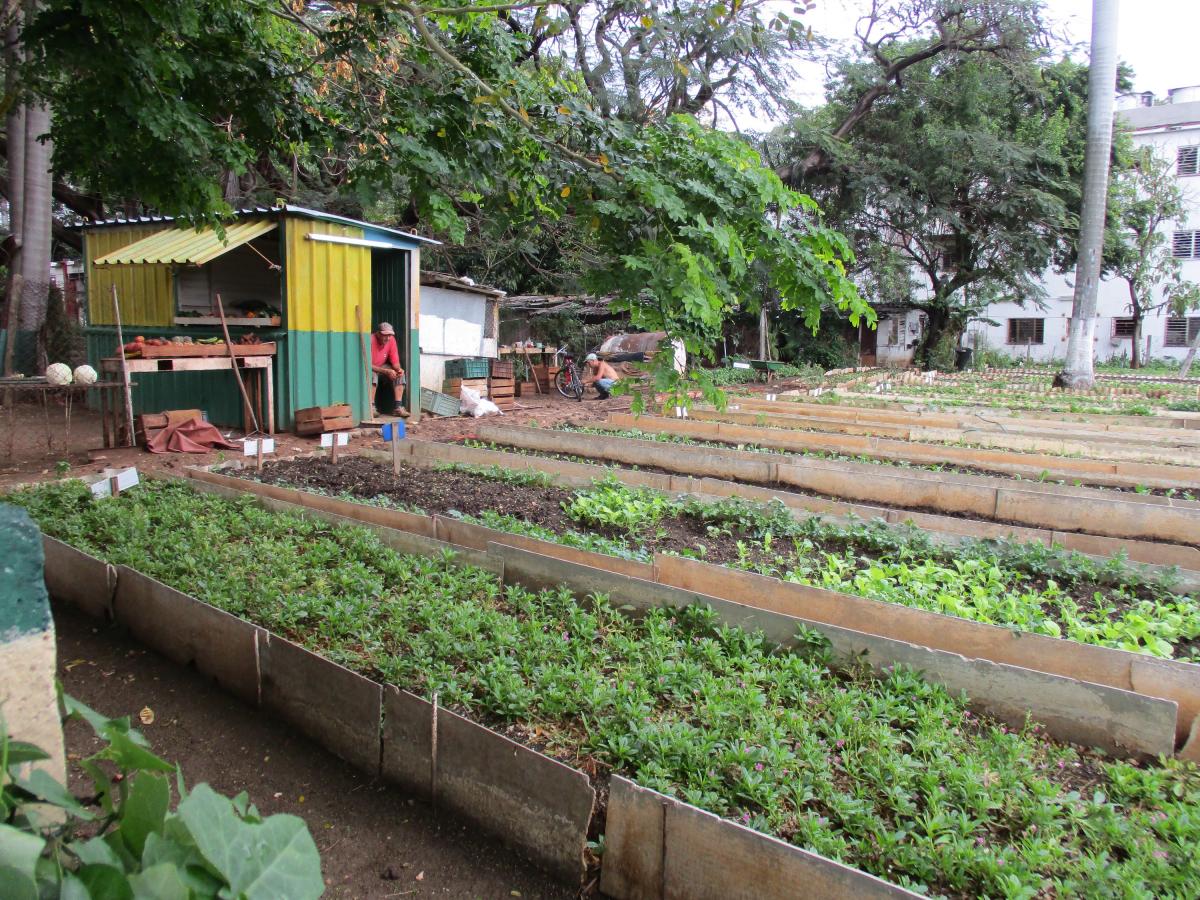Cuba Verde: survival of the ecological alternative
Cuba became a living experiment in a post-petrol future for humanity after the collapse of the Soviet Union meant a cut-off of subsidized oil. This prompted a big push for self-sufficient and ecological models—bicycle transportation and urban farms in Havana, organic agriculture in the countryside. A generation later, Cuba is getting subsidized oil from Venezuela, opening up its economy, and hoping for an end to the US embargo. Have these ecological alternatives survived? CounterVortex editor Bill Weinberg reports back from his visit to the island, with photos and discussion on Cuba's squats, community gardens and organic farms.
Thursday, June 29, 7 PM
Museum of Reclaimed Urban Space
155 Avenue C
Lower East Side, New York City

Organic urban farm in Havana's Vedado district

















Cuba tops Sustainable Development Index
Cuba is the most sustainably developed country in the world, according to a new report. The Sustainable Development Index (SDI), designed by anthropologist and author Dr Jason Hickel, calculates results by dividing a nation's "human development" score, obtained by looking at statistics on life expectancy, health and education, by its "ecological overshoot," the extent to which per capita carbon footprint exceeds Earth's natural limits.
Countries with strong human development and a lower environmental impact score highly, but countries with poorer life expectancies and literacy rates as well as those which exceed ecological limits are marked down.
Based on the most recent figures, from 2015, Cuba is top with a score of 0.859, while Venezuela is 12th and Argentina 18th.
The SDI was created to update the Human Development Index (HDI), developed by Pakistani economist Mahbub ul Haq and used by the United Nations Development Programme to produce its annual reports since 1990. (Cuba Solidarity Campaign)